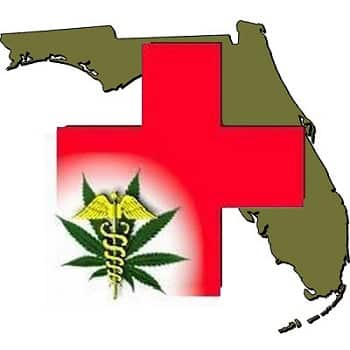 An amendment to the Florida Constitution to legalize medical marijuana may make its way to next years ballot.
An amendment to the Florida Constitution to legalize medical marijuana may make its way to next years ballot.
Rep. Jeff Clemens (D) has submitted House Joint Resolution 353, which would put a medical-marijuana amendment up to the consideration of state voters next year according to a report from the Broward-Palm Beach New Times.
According to Florida election procedures, both the Senate and the House have to pass the resolution by a three-fifths margin for the amendment to make it to the ballot.
The resolution’s language states that a medical-marijuana patient must have been diagnosed with a “debilitating medical condition” by two doctors. Limits would be established based on what is deemed medically necessary.
There would be no employer accommodations and all eligible patients would be able to participate, regardless of age. Patients with children can’t have their kids taken away just for using medical marijuana.
If state or local law enforcement confiscates the medical marijuana in the event of an arrest, the resolution calls for the cannabis to be kept safe and never destroyed and must be returned if the patient is cleared of any charges.
According to a 2009 state-by-state analysis by researcher and former NORML Director Jon Gettman, no other state routinely punishes minor marijuana more severely than does the Sunshine State. Under Florida law, marijuana possession of 20 grams or less (about two-thirds of an ounce) is a criminal misdemeanor punishable by up to one-year imprisonment and a $1,000 fine. Marijuana possession over 20 grams, as well as the cultivation of even a single pot plant, are defined by law as felony offenses — punishable by up to five years in prison and a $5,000 fine. In recent years, state lawmakers have revisited the state’s marijuana penalties — in each case electing to enhance Florida’s already toughest-in-the-nation criminal punishments.
Ironically, despite the Sunshine State’s long history as one of the nation’s stiffest pot prosecutors, law enforcement have steadfastly refused to report their annual marijuana arrest data to the Federal Bureau of Investigation. Illinois is the only other state that elects to withhold this information from federal statisticians.
The amendment would take effect on July 1, 2013, if the issue were passed by the voters.







